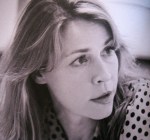Greetings, dear reader. Thought I’d just drop by to see how you’re doing; well, I hope! That’s good. Oh, I’m fine too, thank you for asking.
 If you’re a regular reader, you’ll know that what you normally get here is a lot of theatre stuff, a bit of travel, the occasional Eurovision meanderings and the odd what-not. Well, I had planned a nice set of travel blogs for you about our fascinating trip to India, that should have been going on at this very moment in time. Unfortunately, owing to circumstances beyond our control, this trip has had to be postponed – probably until this time next year. So not only am I unable to bring you first hand experiences of Jaisalmer, Jodhpur, Udaipur and Pushkar, I also haven’t got any theatre trips booked for the moment. Next planned theatrical extravaganza is for about three weeks time when we will be taking in the Menier’s Merrily We Roll Along – that should be excellent.
If you’re a regular reader, you’ll know that what you normally get here is a lot of theatre stuff, a bit of travel, the occasional Eurovision meanderings and the odd what-not. Well, I had planned a nice set of travel blogs for you about our fascinating trip to India, that should have been going on at this very moment in time. Unfortunately, owing to circumstances beyond our control, this trip has had to be postponed – probably until this time next year. So not only am I unable to bring you first hand experiences of Jaisalmer, Jodhpur, Udaipur and Pushkar, I also haven’t got any theatre trips booked for the moment. Next planned theatrical extravaganza is for about three weeks time when we will be taking in the Menier’s Merrily We Roll Along – that should be excellent.
 So here’s a chance to look forward to some more great shows that will be coming our way – and by consequence yours once I’ve written about them – into December and the New Year. After Merrily, we’ve got some Christmas shows – the Northampton Derngate’s panto Cinderella, and their festive play, A Christmas Carol; we’ll be going up to Sheffield again to see their panto, Cinderella (again, shame), and their new production of My Fair Lady, which I expect will be brilliant. We’ll be going into London to see the first of the new Michael Grandage season at the Noel Coward Theatre, Privates on Parade – that’s one of my favourite plays; Mrs Chrisparkle has never seen it, and I took my first girlfriend to see the original production back when I was 17, so that will be nice. Spymonkey are reviving their Cooped at the Royal Northampton, which should be a laugh; we’ve got the touring productions of The Ladykillers and Matthew Bourne’s Sleeping Beauty at Milton Keynes, as well as the next in the series of Royal Philharmonic Concerts at the Derngate. And that’s all in January!
So here’s a chance to look forward to some more great shows that will be coming our way – and by consequence yours once I’ve written about them – into December and the New Year. After Merrily, we’ve got some Christmas shows – the Northampton Derngate’s panto Cinderella, and their festive play, A Christmas Carol; we’ll be going up to Sheffield again to see their panto, Cinderella (again, shame), and their new production of My Fair Lady, which I expect will be brilliant. We’ll be going into London to see the first of the new Michael Grandage season at the Noel Coward Theatre, Privates on Parade – that’s one of my favourite plays; Mrs Chrisparkle has never seen it, and I took my first girlfriend to see the original production back when I was 17, so that will be nice. Spymonkey are reviving their Cooped at the Royal Northampton, which should be a laugh; we’ve got the touring productions of The Ladykillers and Matthew Bourne’s Sleeping Beauty at Milton Keynes, as well as the next in the series of Royal Philharmonic Concerts at the Derngate. And that’s all in January!
 February sees the return of the Trocks to the Birmingham Hippodrome – we always have to see them, as their combination of skill and comedy is out of this world. We’ll be seeing Sheffield’s new Full Monty, the return of A Chorus Line to the Palladium (still my favourite show of all time), Ellen Kent’s production of Carmen, which boasts a real Andalucian Stallion – not sure if that’s simply “bigging up” the guy playing Escamillo; and the touring production of The 39 Steps at Northampton which will be a hoot. March brings the prospect of The Book of Mormon in London (can’t wait) plus a comedy gig from Harry Hill. So there’s definitely loads to look forward to. I think the Royal and Derngate announce their spring season next week, so no doubt the credit card will be working overtime again.
February sees the return of the Trocks to the Birmingham Hippodrome – we always have to see them, as their combination of skill and comedy is out of this world. We’ll be seeing Sheffield’s new Full Monty, the return of A Chorus Line to the Palladium (still my favourite show of all time), Ellen Kent’s production of Carmen, which boasts a real Andalucian Stallion – not sure if that’s simply “bigging up” the guy playing Escamillo; and the touring production of The 39 Steps at Northampton which will be a hoot. March brings the prospect of The Book of Mormon in London (can’t wait) plus a comedy gig from Harry Hill. So there’s definitely loads to look forward to. I think the Royal and Derngate announce their spring season next week, so no doubt the credit card will be working overtime again.
 Early January will also see the Third Annual Chrisparkle Awards, a star studded gala gathered on my desktop to select the finest contributions of the year. In 2010 The Big Fellah, Thomas Morrison, Tracie Bennett, Matthew Bourne’s Swan Lake and Paul Sinha won best new play, best actor, best actress, best dance, and best standup. Last year it was One Man Two Guvnors, Derek Jacobi, Gina McKee, The Trocks and Jason Byrne. Who will be festooned with plaudits this year? Only a few weeks till we find out.
Early January will also see the Third Annual Chrisparkle Awards, a star studded gala gathered on my desktop to select the finest contributions of the year. In 2010 The Big Fellah, Thomas Morrison, Tracie Bennett, Matthew Bourne’s Swan Lake and Paul Sinha won best new play, best actor, best actress, best dance, and best standup. Last year it was One Man Two Guvnors, Derek Jacobi, Gina McKee, The Trocks and Jason Byrne. Who will be festooned with plaudits this year? Only a few weeks till we find out.
 And of course we are coming in to the Eurovision season. So early, you ask? Absolutely. Lithuania have already had three heats and (I think) five countries are choosing their songs in December. Preparations get earlier and earlier every year. Swedish Television have already made their mark on next year’s contest by shaking it up a bit. For the first time that all important running order will be decided by the show’s producers rather than by a random draw. The idea is that they can construct a more balanced programme by choosing a suitable order for the songs. That will probably work; but every fan knows that you can’t win from second position, and that every winner since 2004 has come from the 17th – 24th slot, so this is highly manipulative of the final outcome. Personally, I’m not happy about it. The fans who go to Malmo will also be largely standing in the centre of the stadium, which again will probably look lively on TV but will be a pain in the legs for some people, and anyone on the short side probably won’t get value for money for their €345. Still, it’s all good fun, isn’t it!
And of course we are coming in to the Eurovision season. So early, you ask? Absolutely. Lithuania have already had three heats and (I think) five countries are choosing their songs in December. Preparations get earlier and earlier every year. Swedish Television have already made their mark on next year’s contest by shaking it up a bit. For the first time that all important running order will be decided by the show’s producers rather than by a random draw. The idea is that they can construct a more balanced programme by choosing a suitable order for the songs. That will probably work; but every fan knows that you can’t win from second position, and that every winner since 2004 has come from the 17th – 24th slot, so this is highly manipulative of the final outcome. Personally, I’m not happy about it. The fans who go to Malmo will also be largely standing in the centre of the stadium, which again will probably look lively on TV but will be a pain in the legs for some people, and anyone on the short side probably won’t get value for money for their €345. Still, it’s all good fun, isn’t it!
 So please consider this meandering blogpost as representative of work in progress. It’s like one of those spacers you’re meant to put against the wall when you’re trying to do some tiling – not very attractive in itself but a tool to separate two more important items of décor. Or maybe like a red carpet; a glamorous conduit leading VIPs from one artistic event to another. Or just as a filler because I have nothing else to blog about at the moment.
So please consider this meandering blogpost as representative of work in progress. It’s like one of those spacers you’re meant to put against the wall when you’re trying to do some tiling – not very attractive in itself but a tool to separate two more important items of décor. Or maybe like a red carpet; a glamorous conduit leading VIPs from one artistic event to another. Or just as a filler because I have nothing else to blog about at the moment.
























